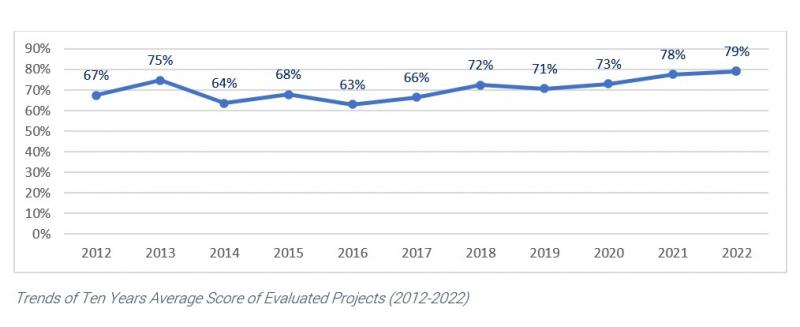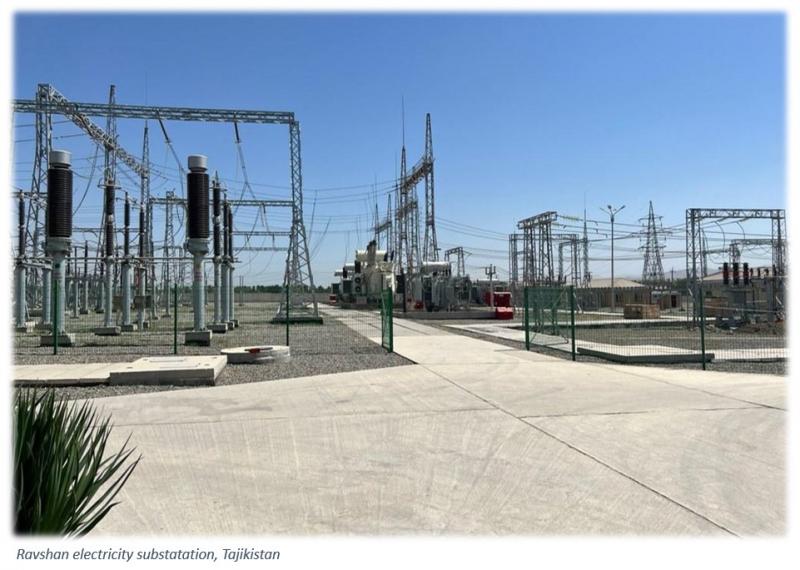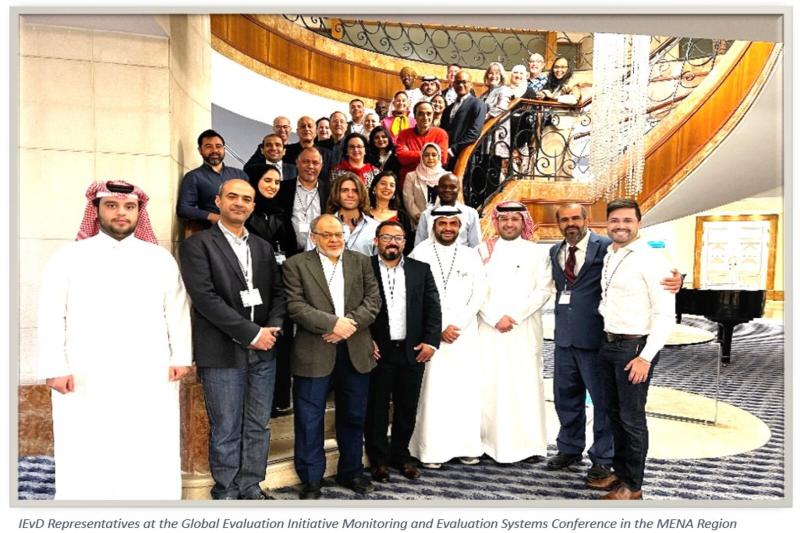IsDB 2022 Evaluation Report is Out, Reveals Remarkable Improvement in Project Quality
Jeddah, KSA 22 August 2023: The Islamic Development Bank (IsDB) has unveiled its Annual Evaluation Report 2022, showcasing remarkable improvement in project quality. The report, prepared by the Independent Evaluation Department (IEvD), encapsulates the evaluations of IsDB interventions conducted throughout 2022.
The report rigorously assessed the development effectiveness of the IsDB interventions to promote the use of evidence to inform decision-making and generate evidence for improving quality, relevance, and timeliness. IEvD also carried out a series of evaluation capacity development initiatives through productive partnerships with peer development institutions.
During 2022, IEvD evaluated 11 projects including two projects assessed jointly with other development partners. The average score of all 11 projects evaluated during 2022 was 79 percent, a sharp rise from 67 percent in 2012, indicating significant improvement in the overall performance of IsDB projects in the member countries over the past decade.
Out of the 11 projects evaluated, five projects (46%) were rated ‘Highly Successful’, four projects (36%) were rated ‘Successful’, while two projects (18%) were found to be ‘Partly Successful’. The evaluations also demonstrated a positive evolution in project performance compared to the year 2021. In 2021, only 25 percent of the projects were rated ‘Highly Successful’ and during 2012 – 2022, only 36 percent of the evaluated projects were rated ‘Highly Successful’, compared to 46 percent in 2022.

“IsDB leveraged its evaluative knowledge in designing its Food Security Response Program (FSRP). The new program took stock of the lessons drawn from the implementation of the Jeddah Declaration Program on Food Security adopted back in 2008,” says Ahmed Ag. Aboubacrine, IsDB’s Acting Director, Independent Evaluation Department.
“Concerted actions are needed from governments, executive agencies, development financiers, civil society organizations, and private sector agencies to ensure that insights, such as those gathered through data & analytics, flow from a wide range of credible sources, leveraging multiple inputs to inform decision-makers.”

In 2022, IEvD received a request from the IsDB Management for a special review of the performance of Counterpart Funding in IsDB operations to help identify the issues pertaining to the counterpart funding in the projects and understand how the issues could be addressed to eliminate the gaps in ensuring the realization of the committed funds by the respective governments. In addition, IEvD also undertook a synthesis of learnings from past evaluations of Grant-Based Operations of the Bank to help guide future interventions of the Bank. As a special evaluation exercise, IEvD also evaluated the IsDB Food Security Program, which aimed at re-invigorating the agriculture sector in IsDB member countries to help them become more productive and commercially oriented to increase the income level of the farmers and livestock raisers and ultimately promote food security and overall economic growth.
Under the mandate of Corporate, Country and Thematic Evaluations, IEvD undertook in-depth evaluation of IsDB Equity Investments in Islamic Banks, Line of Finance Operations of IsDB, and IsDB Off-Balance Sheet Resource Mobilization initiatives, programs, and activities.

IEvD has embarked on playing a leading role in promoting the culture of evaluation in the Middle East by organizing the First MENA Monitoring and Evaluation Conference, in partnership with the Global Evaluation Initiative, in Amman, Jordan. IEvD also conducted a joint evaluation mission to Bahrain, together with the Saudi Fund for Development. This was the first evaluation exercise of the SFD, which helped enhance the evaluation capacity of this partner organization. Several strategic alliance and capacity development activities were carried out with other partner organizations in the host country, including the Al Athar Center and King Saud University, Riyadh.
The lessons learned from the evaluations in 2022 emphasized that (i) Learning from best practices, anticipating potential risks, and identifying appropriate mitigation measures are instrumental in ensuring the timely completion of projects; (ii) A well-capacitated executing agency, coupled with technically qualified, and financially capable contractors and consultants, is instrumental for timely completion of projects; (iii) Aligning project objectives with government priorities, active involvement of end-beneficiaries in project design, and allocation of sufficient operations and maintenance budgets help improve the sustainability of project benefits; (iv) Good preparatory work, effective planning, and quality designs are key success factors for implementing development interventions; and (v) Timely release of counterpart funding and flexibility in the financial plan of projects improve project efficiency and sustainability.
Looking forward, IEvD will continue to work through better aligning the evaluation activities with the updated strategy, re-calibrating the business model of IEvD, leveraging the power of innovative technological solutions, and improving planning for annual evaluation work in light of shifting priorities, increased demand for evaluation by the Management, tightened resources and changing operating environment.
The IsDB Annual Evaluation Report 2022 and the Key Highlights of the report are available for download on the IsDB publications page IsDB Website.